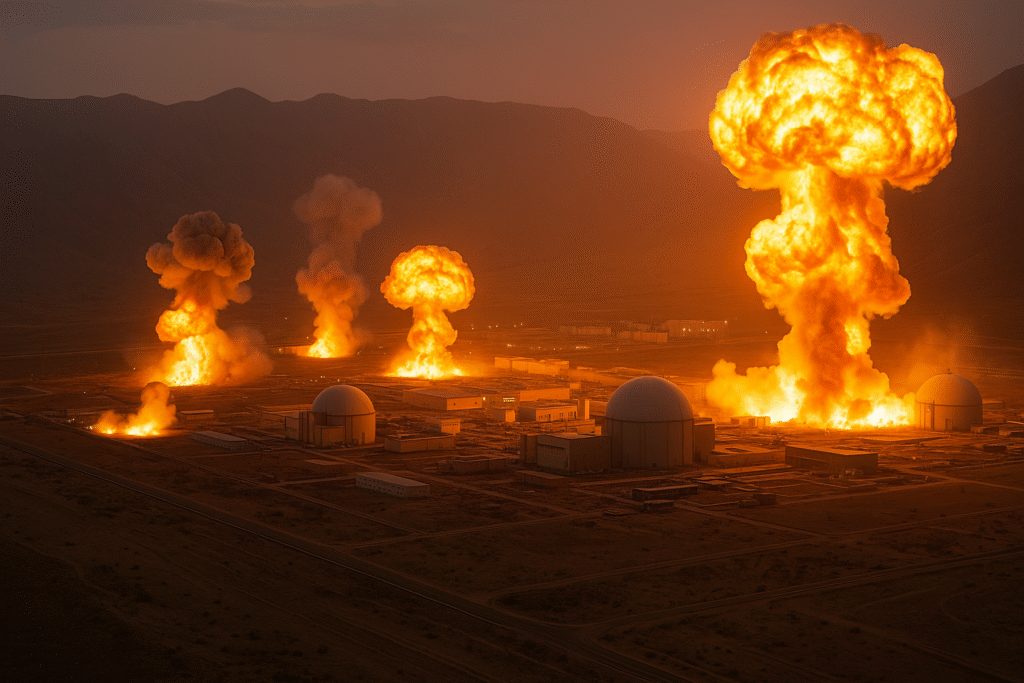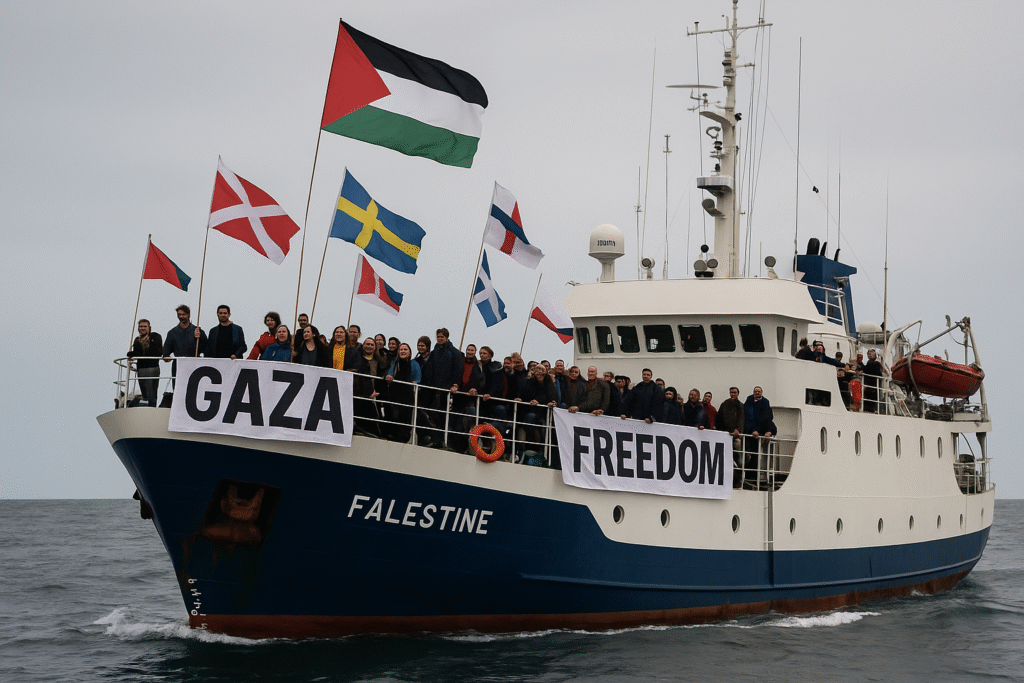U.S. Strikes Fordow, Natanz & Isfahan: War with Iran Escalates as Iran Retaliates
U.S. Strikes Fordow, Natanz & Isfahan: War with Iran Escalates as Iran Retaliates What Just Happened? On June 21–22, 2025, the U.S. launched precision airstrikes on three of Iran’s most sensitive nuclear facilities: Fordow, Natanz, and Isfahan. Using B-2 stealth bombers with Massive Ordnance Penetrators (bunker‑buster bombs) and submarine-fired Tomahawk missiles, the strikes reportedly “completely obliterated” Iran’s enrichment capabilities thetimes.co.uk+15theguardian.com+15apnews.com+15. This marks a sharp escalation: the U.S. has officially entered the Iran–Israel war, supporting Israel’s earlier assaults on similar targets. How Did Iran Respond? Within hours, Iran launched a large-scale missile assault targeting Israeli cities including Tel Aviv, Haifa, and Be’er Yaakov. Officials report dozens injured and significant property damage timesofindia.indiatimes.comen.wikipedia.org+5thesun.co.uk+5cbsnews.com+5. Evacuations and sirens across Israel and Iran pushed both nations into high alert. International Reactions Iran’s Foreign Minister Abbas Araghchi warned of “everlasting consequences” and hinted at deeper cooperation with Russia time.com+10news.sky.com+10apnews.com+10. United Nations and European nations urged urgent de-escalation, warning of catastrophic consequences nypost.com+9apnews.com+9reuters.com+9. NATO countries including the UK, France—and even Russia in diplomatic tone—called for restraint to avoid wider crisis . Technical & Safety Details The deepest and most fortified site, Fordow, buried under a mountain, was targeted using powerful bunker-busters; U.S. reports claim it’s “gone,” with no radiation leak aljazeera.com+15theguardian.com+15aljazeera.com+15. Iranian officials, and the IAEA, reported no nuclear material release and local evacuations underway en.wikipedia.org+1theguardian.com+1. How This Could Broaden Regional allies like the Houthis have threatened escalation following U.S. involvement time.com+1theguardian.com+1. Both sides are reinforcing military readiness across the Middle East—from naval fleets to air defense deployments . Domestic political divides in the U.S. emerge: Republicans largely support, while critics question legal authority and potential quagmire time.com+2ft.com+2timesofindia.indiatimes.com+2. What Comes Next Continued missile exchanges: Iran has vowed robust retaliation, while Israel has already launched counter-strikes, heightening risk of full-scale war aljazeera.com+3aljazeera.com+3theguardian.com+3. Diplomatic pressure builds: UN, EU, and major powers urge talks—but Iran has ruled out diplomacy until attacks cease . Wide ramifications: Energy markets, global security, and regional alliances are under stress. Many analysts warn the Mideast is on the brink. Why You Should Care Global impact: A broader regional war could disrupt oil prices, trade routes, and international security. U.S. policy shift: This marks America’s most direct military strike on Iran in decades—a potential turning point. Human stakes: Civilians in both countries face danger, displacement, and growing fear. It’s more than strategy—it’s lives. Final Word The U.S. strike on Iran’s nuclear sites has plunged the Middle East into deeper conflict. With tit-for-tat missile exchanges and international alarm, the risk of full-scale war has spiked. As global leaders push for restraint, one question hangs: Will this era of escalation lead to lasting peace—or something far darker? 🔗 Related Reading & Tools What is Fordow & why it matters (explainer) ft.com+12theguardian.com+12aljazeera.com+12 IAEA update on radiation safety Timeline of Israel-Iran airstrikes
U.S. Strikes Fordow, Natanz & Isfahan: War with Iran Escalates as Iran Retaliates Read More »


